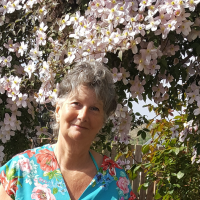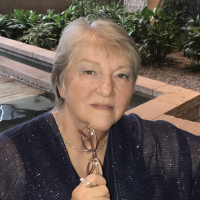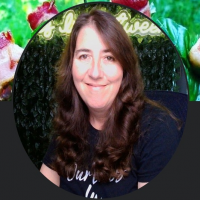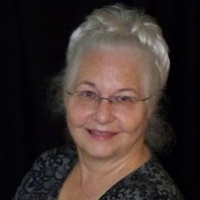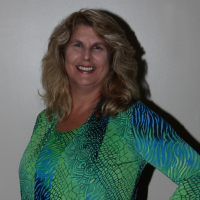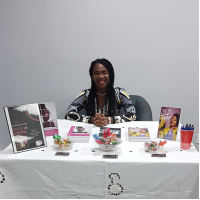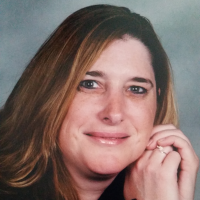1) Blog and Social Media Links
Create a blog or website well in advance of your book launch, and keep your followers informed of your progress. Remember to include information on your blog/website and social media links at the end of your book.
2) Quality
Ensure your book is of the very best quality, by enlisting a professional editor and book cover designer. It will pay dividends.
3) Keywords and Categories
Choose your categories and keywords for online retailers carefully. Try to find categories that have smaller numbers of books to boost your rankings. Keep a close eye on your progress, and tweak as necessary.
4) Pricing
Keep your prices in line with your competitors. Readers will not buy your book if you charge too much. Regular discounted offers will increase sales.
5) Read and Review Books
Read and review other author's books, and post to your blog/website, social media, BookBub and Goodreads...
It will come back to you in many ways.
1. Get it down the first time nonstop without going back to edit or even worry about the spelling.
2. Decide who is the MC and then how many other voices you will need to make this story complete.
3. Keep a list of all your characters, the spelling of their names, and a page of information to refer to as you write about them. Things like, descriptions of their hair, eyes, physique, favorite food and drink, pet words they use, etc.
4. Date the start of your story, write down the main characters' dates of birth and any important dates that might be mentioned based on when the characters are are born so you're consistent with the timing of events.
5. Keep a list of questions or things to check on before sending your ms to your editor.
I just have 2. Tips.
1. Advertising in the USA works best in the early morning.
2. Using Ingramspark for my publishing has me selling more paperbacks. They are great!!
1. Just write. Once you've begun to start writing what you want written, the nagging in your head will stop.
2. Write for the love and the craft of the art. Publishing has become an overrated success circus.
3. No one is going to teach you how to write. If you’re interested in technique or some technical skill, choose a more suitable occupation.
4. If you want to improve your writing, read and draw inspiration from among the greatest writers who have lived and are no longer here.
5. Get someone to read what you have written. He or she can see things you can't see and offer constructive criticism.
#1 STAY FOCUSED
There's always, always something that can distract you from sitting in your writing chair. The grandkids want you to go play in the snow. The doughnut in the kitchen is calling your name. It takes a lot of self discipline to get a book written. You are your own boss, so you have to keep reminding yourself that if you don't get a book written, you are not going to get it published.
#2 NOTEBOOK, FILE, SOMETHING
Keep a notebook, file or something to refer back to concerning your characters. If Tommy has brown eyes on page four, blue eyes on page sixty and brown eyes on page two hundred, your readers will scream at you. I'm old school. I still use a notebook and a pen for my rough outline ideas. On the first page of that notebook I write the ABC's down one side, and then I start a list of my characters. You really shouldn't have characters with the same first initial. It's confusing to your reader. Also hero/heroine with sound alike names (Lisa and Lane) will stump your reader. Especially on series books when I need to remember the hero from book one when I'm writing book seven, I buy one of those little recipe card files and keep it right beside my computer. Each character, even the dogs and cats, gets an index card (filed alphabetically by first name) in the card box. That way all I have to do is find the card, and presto hero in number one was six feet two inches tall and had blue eyes. Some folks like to do this on the computer, and that's fine, but once I lost nine thousand words by shutting the wrong window and not saving. So it's old school for me.
#3 EDIT! EDIT! EDIT!
Your rough draft is finished. Now it's time to edit, edit, edit. Have someone else read your manuscript, and don't take the constructive criticism personal.
#4 WALK AWAY
If you begin to feel overwhelmed while you're working on those edits, get up and walk away from them. That's when it's all right to leave the writing chair. Take a walk. Pet the cat. Get your mind cleared so you can go back to the edits with a fresh outlook.
#5 START A NEW BOOK
Your book is finished, is in the agent's hands or the publisher's, now what? You start another book! This is the WRITE, DON'T WHINE! phase. Don't whine that it's taking so long to get your book published, or that you've got rejection slips. Write another book while you're waiting. When that first one does sell, you'll have a new one in your hands to sell.
1. Write. No seriously, just write. You can't become an author without writing something.
2. Focus on getting your thoughts on the paper. You can tidy up afterwards.
3. Challenge yourself. Set word counts to push yourself to do more.
4. Get someone to proofread your book. You'll be supprised to see how many things you miss.
5. Hire an editor for your first books. It makes a huge difference.
1) Never give up
you never know, what will come around the corner, then you missed it.
2) Write every day, if you can, to keep the momentum.
3) Read, read and read books for yourself.
4) write reviews for the books you read.
5) I try to do all that (Smiles)
1) Start with an elevator pitch to yourself. Is the story intriguing? Is there an interesting protagonist and challenge? Do you want to know more?
2) Commit to finishing the story. Once you begin a plot that drives you to write it, let nothing stop you from completing that last draft.
3) Don't show anyone your first draft. Whether it's to your editors or your beta readers, always put your best foot forward. Besides, they probably think you're a genius and most first drafts will dispel that notion.
4) Challenge yourself. Give yourself a word count and stick to it. Write in a genre you dislike, just to see if you can do it. The lessons you learn while doing this make you a stronger writer in the genre(s) you enjoy writing.
5) Never write to the trend. By the time you write your story and get it edited and published, the trend's already moved on. Instead, #bethetrend!
Write, what you want. The whole purpose of writing is that 10 writers can be given the same outline of a story and come up with completely different and fantastic tales. We don't need more folks writing to market. We need people creating and telling a story with their own unique voice. Sometimes those stories will fall "within market" sometimes on the "borderline" and sometimes totally "out of the grid".
All of this is great and needed. Don't let others (writers/editors/readers) control your story or your creative process. Listen, learn, adjust...but at the end write the story YOUR characters are telling you.
If you don't have talking voices in your head, leading you off your outline every once in a while...or even often, then your not doing it right! You can be a great writer, be 100% true to you and your characters and still make money (if that is your most important goal-who doesn't like money?)
I feel-a great story and some good marketing will always make you a winner, even if you don't follow the crowd. Stay YOUR course, do the WORK, and have fun! Also remember is a LONG race in the writing business.
Market early-and this can be free Social Media, FB Groups, etc Also you can start playing with ADS. Start small and work your way up once you know what you are doing. I often do $1.00 day for 5, 10 15 days. AMS $1.00 a day netted me a profit in sales (minus what I paid for the sales) in my first year of advertising.
1) Write. Keep writing no matter what. Writing is like a muscle. It has to be used to develop.
2) Your writing will change as you do. Your voice will evolve as you grow, so accept that your first book will be very different from your tenth or even twentieth.
3) Be open to suggestions. Reviews (good and bad), beta readers, editors, and fellow authors can all help you become a better writer. Some things may not be what you want to hear but listen. You may hate having to change something in your manuscript but try it and see what happens. You can write in a bubble, but you can't publish in one.
4) Write what you want to write, and don't follow the trends in genres. Writing something because you think you will capitalize on whatever the hottest genre is will turn out to be a mistake. What is hot today, could have turned cold by the time you publish, so write what you want to read. Chances are, you will find readers who want to read it, too.
5) NEVER, EVER GIVE UP!! The only person who will believe in you and your book IS YOU! Accept that there are days you will want to walk away, but always vow to keep going.
1) Read or listen to audios. It will help you fine tune your writing.
2) After you are done with your first draft, walk away, and then go back and read again. You will read with fresh eyes and you will have new ideas to make the story better.
3) Don't fret about 1 star reviews. Welcome to the author world. Bad reviews come with the profession.
4) Don't worry about the grammar when you write your first draft. Just keep writing. Fix that during the second round.
5) Remember you CAN'T please ALL your readers. So write to please yourself. YOU must love your story before anyone else can.
1) Never pay for reviews (this does not include review companies such as Netgalley, Hiddengems, OnlineBookClub, etc. which charge to list your books on their sites for their clients to voluntarily choose to review if they want.)
2) Look at the book covers of the top books in your genre. Does yours compete?
3) Don't do your book covers yourself unless you have experience in graphic art.
4) Get input from other authors on your blurbs. Some authors find them easy to do, while most do not. Avoid outlining the entire book--explain the first 1/3 of the book and use a question to make the reader guess what might happen in the last 2/3.
5) Do not harrass other authors to read/reveiw your book or do review swaps. Most authors do not have time for this and the popular authors are constantly being asked to review other authors' books.
7) There are over 1000 groups on Amazon that will let you promote your books in them. Do a search for your genre or "book promo" and you'll get tons of them popping up. Read each group's guidlines for posting so you don't get kicked out.
8) There are numerous groups on Facebook that are for authors only, to develop their craft and with tips on how to market. Join them.
9) Set a monthly budget.
10) Research the different book promotion sites and ask other authors about their experiences with them.
11) Don't put your book on sale shortly after a release because your sales are down. Readers get upset when they see a book that just came out, that they already bought, going on sale within the first three months of release.
12) Don't overprice or underprice your book.
(Yup, more than 5 but all needed to be said!)
1) Don't give up.
2) Listen to the advice of authors who have come before you, yet do what works best for you.
3) Get an editor.
4) Read other authors in the top 100 of your genre to better understand what readers like.
5) Never respond to reviews, but take a bad review and use it as constructive criticism to make your books better.
6) Leave your ego at the door
(Okay, that was six, but they are all important.)
